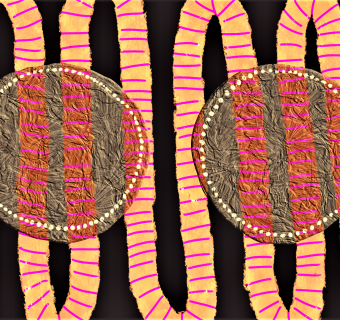“In the name of self-care, I will be spending some moneeyyyyy in the next 30 minutes,” I dramatically announced to my friend behind the counter at Finch, one Friday afternoon this past October. I had just been canceled on — again — by someone who used to make me nervous with excitement but was beginning to make me simply nervous. I like to pride myself on being an emotionally open person. If a friend asks me how I am, I’ll respond honestly. If I’m stressed about something, I usually isolate the issue and then try to change my behavior– it doesn’t always work, but at least I’m self aware. Well, here I was, fully conscious of the problem at hand, and yet about to engage in a behavior my rational, anti-consumerism brain would hate. I knew all the tried and true self-care methods and believed in them, for that matter. Yet my journal didn’t make it out of my nightstand that afternoon. I didn’t roll out my yoga mat to warm up for a long run, even though I — now — had a wide open Friday. Instead, my brain beamed shock waves through what felt like my whole being: Girl, go buy something new. You deserve it! Yeah, this is self-care. Right?
I have to establish that I’m not in existential torture over the jean skirt I bought that day. I had wanted it for weeks, waiting for the right moment where I both had enough money in my bank account and wanted to treat myself to something special. I definitely don’t beat myself, or anyone else, up for getting joy out of buying clothes. But dropping that phrase of “self-care” (albeit sort of ironically) woke up a little voice in the back of my head, one that said, “This is not going to make you feel better.” Ok, obviously! A new skirt wasn’t going to make me suddenly not care that he didn’t want to spend time with me. I knew that, but I thought it could be a distraction, at least.
Everyone knows the time-old debate: can money buy happiness? But the ever-expanding modern self-care industry takes the question even further.
Was it? When I left Finch that afternoon, my new skirt in a brown paper bag, I thought I’d go back to my apartment to finish packing for the upcoming fall break. Instead, my feet carried me further to Grounds. My favorite bench, the one under the huge tree across from the Anthropology building, was luckily open, so I paused for a minute. That minute turned into an hour, an hour I spent practically vibrating in anxiety. The skirt? At my feet. Out of my mind. Distraction tactic = failed.
That moment had me reflecting on the idea of self-care. The phrase feels culturally ubiquitous now, even like a buzzword — vaguely cringy, with an air of inflated importance. I do believe in the basic tenets. Taking time to do things you love, letting your body + mind rest, and prioritizing your own well being first are all valid behaviors. Yet self-care is often synonymous now with consumerism like an expensive candle, or a massive shopping haul, or a complex skincare routine. Everyone knows the time-old debate: can money buy happiness? But the ever-expanding modern self-care industry takes the question even further. Your money won’t just buy you happiness. No, what we have today is a moral justification — a societal calling to spend money in order to better ourselves.
People trace self-care back to Audre Lorde. In her 1988 essay collection A Burst of Light, she wrote “Caring for myself is not self-indulgence, it is self-preservation, and that is an act of political warfare.” But Lorde wasn’t washing her face with five serums every morning. She was dealing with cancer, while also trying to keep making challenging and inspiring work. I had never seen this quote until researching for this piece, but I can see how its radical tone has been co-opted today. Instagram influencers and celebrities will sell products because of brand deals, but their marketing strategies rely on creating personal connections with audiences that go beyond the TV commercials of years past.
Sydney Sweeney did this collaboration (Partnership? Brand ambassadorship? Job?) with skincare brand Laneige in August. The Instagram post shared to her account has a couple pictures that look like traditional makeup modeling shots, with her profile very sharp and highlighted against plain colored backgrounds. However, there’s also a “behind the scenes” video included in the post of her acting silly and pushing a balloon against her face. Because she’s normal! She’s relaxed and go with the flow and goofy! This sleeping mask (what is this!) is totally a Sydney Sweeney staple every night. Don’t think about the hundreds of photos probably taken, the “casual” Instagram captions drafted by her social media team, the emails between Laneige and her publicist. Maybe she really does love this brand! Who’s to say for sure? But the thing is this Instagram post isn’t just selling skincare — it’s selling this idea of fluency in the language of skincare. This beautiful woman is telling us this is “the pink skincare trio of my dreams!!!” in the caption, like she’s texting her close friends. A small part of our brain thinks: “she must know what she’s talking about, huh?” Maybe if I buy this, I’ll know it too.
Self-care isn’t a noun to purchase. It’s an act, the action of caring for yourself, and that can take some work.
The commodification of self-care isn’t just found in the skincare industry, however. Just think about the “little treat” trend on social media, where people buy themselves a reward (like a coffee) after doing something difficult, or even mildly unpleasant. I personally hate this phrase and find it infantilizing, but I understand the desire to give yourself a gift. Sometimes the instant gratification of a purchase is all we have energy for. But in the long run, it’s an unhealthy habit to fall into. Buying something to get through each day has got to be a small Band-Aid for a larger problem within a person’s life. And a $6 coffee a day adds up!
So what is real self-care, then? Even the meditative work of writing in a journal requires the purchase of a notebook itself. I run at least three times a week in leggings that cost almost $100 and shoes that cost even more. Yes, there are prices inherent in almost everything we do to feel good. But the journal and the shoes are different to me. They’re a means to an end. Writing and running invoke the same feelings in me, even though they’re radically different on a surface level. Both activities are forms of self-care to me because they streamline my racing mind and make me feel more connected to my body. That’s usually what I need to do to care for myself. Someone else might need to distract themselves or get a new perspective. Maybe self-care for them looks like cooking or doing yoga or meditating. That’s what distinguishes real self-care. Fruitful happiness won’t get handed to us on a platter. Self-care isn’t a noun to purchase. It’s an act, the action of caring for yourself, and that can take some work.
A little over a month later, I’m sitting in Bodo’s, finishing this piece up, and wearing that jean skirt. It rocks — super comfortable, looks cool with sweaters, and I feel like that frazzled English woman aesthetic. I don’t regret this purchase at all. However, acting like it was an act of self-care is false. When I look back at that day, I wish I had written through the stress in my journal. Getting my feelings on paper would have streamlined my thoughts and probably helped me make a more rational decision. Plus, sometimes wearing this skirt reminds me of that day, which is not a pleasant feeling at all. I know that life will continue to stress me out, and I might respond by spending money. If that happens, that’s okay. However, I hope that before I buy a five dollar Insomnia cookie or get another skirt at Finch, I’ll put my phone down or walk outside or pull out my journal. We all want to feel good — but real self-care requires investing in ourselves first, before products.








